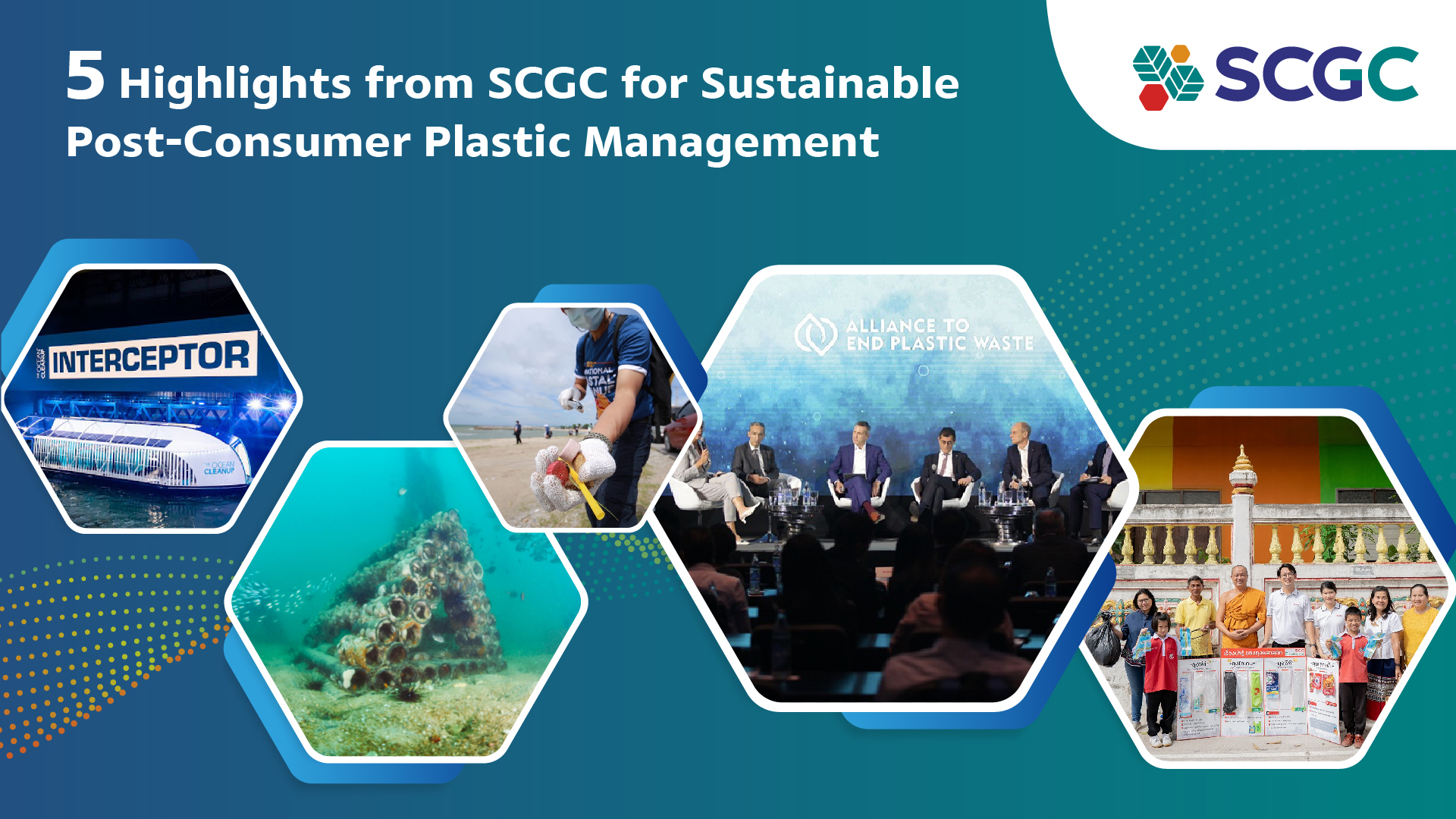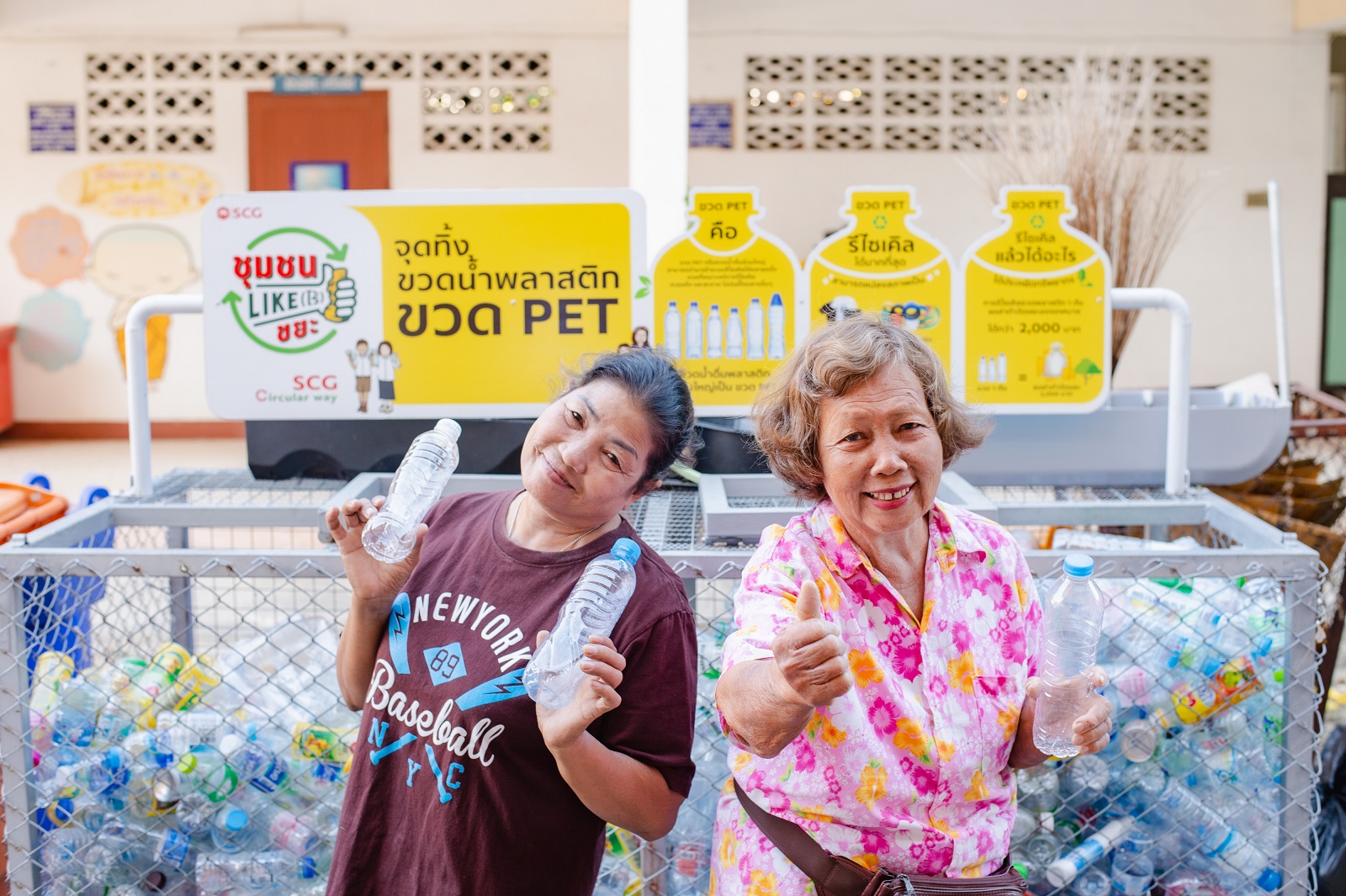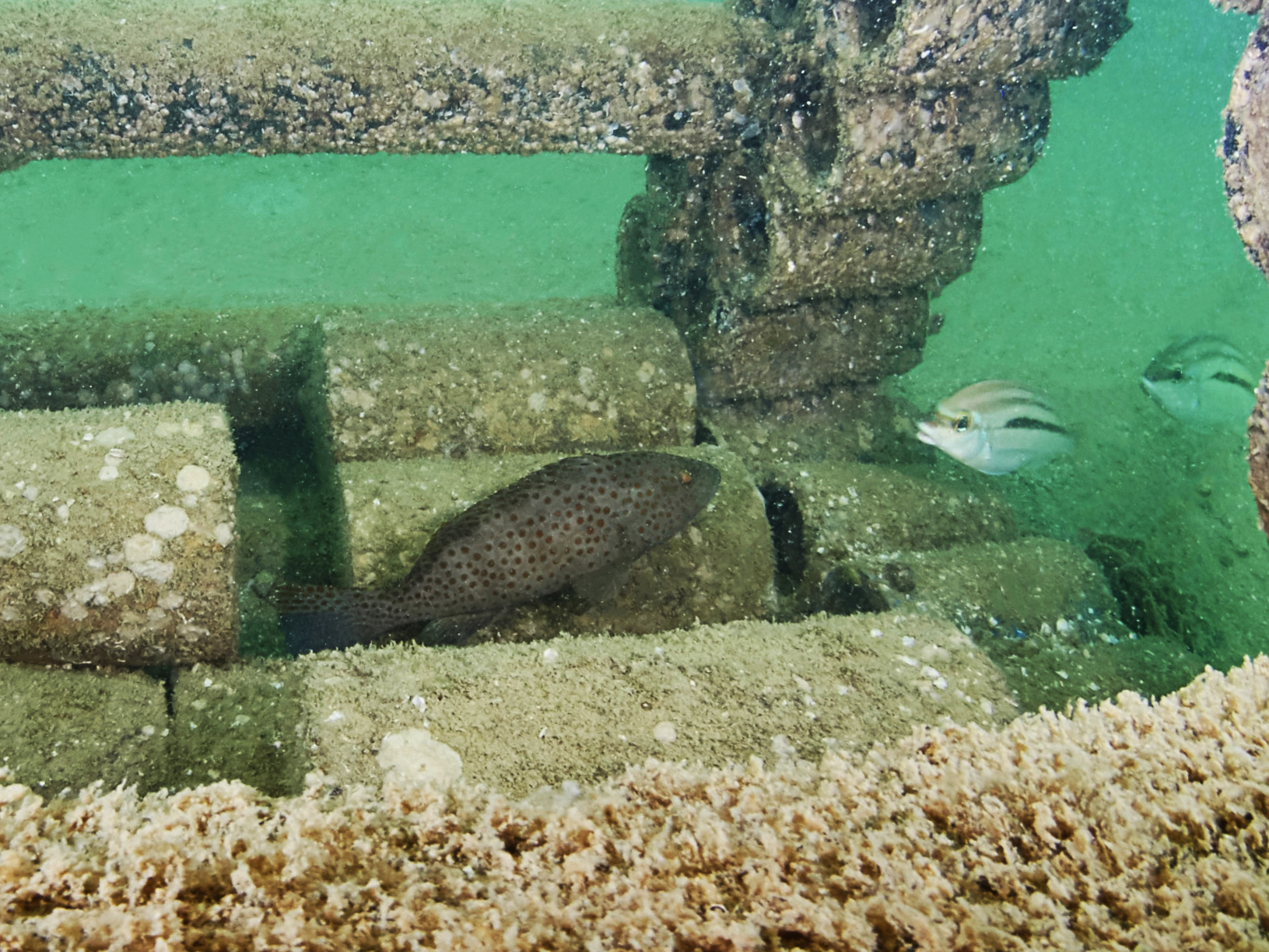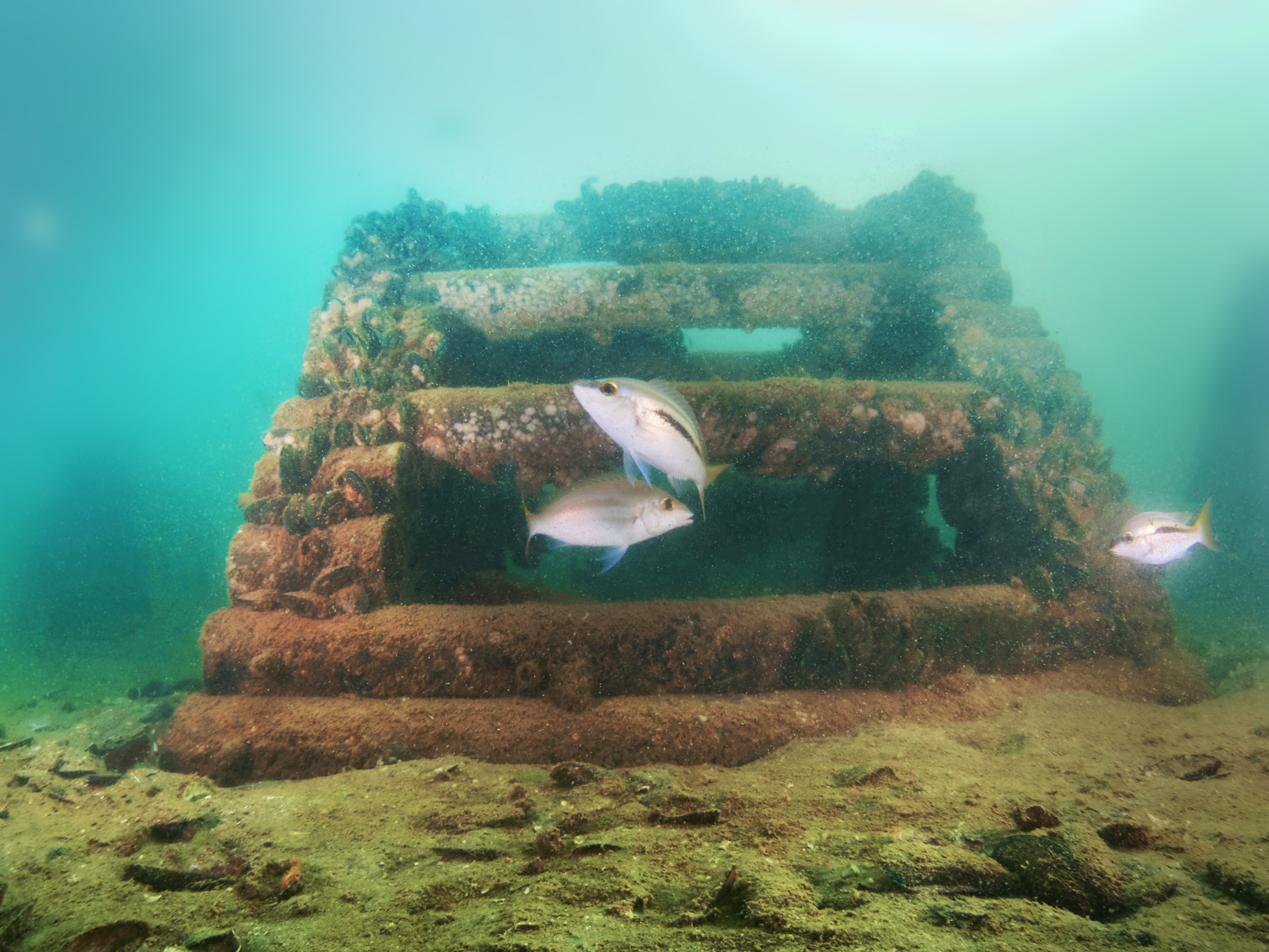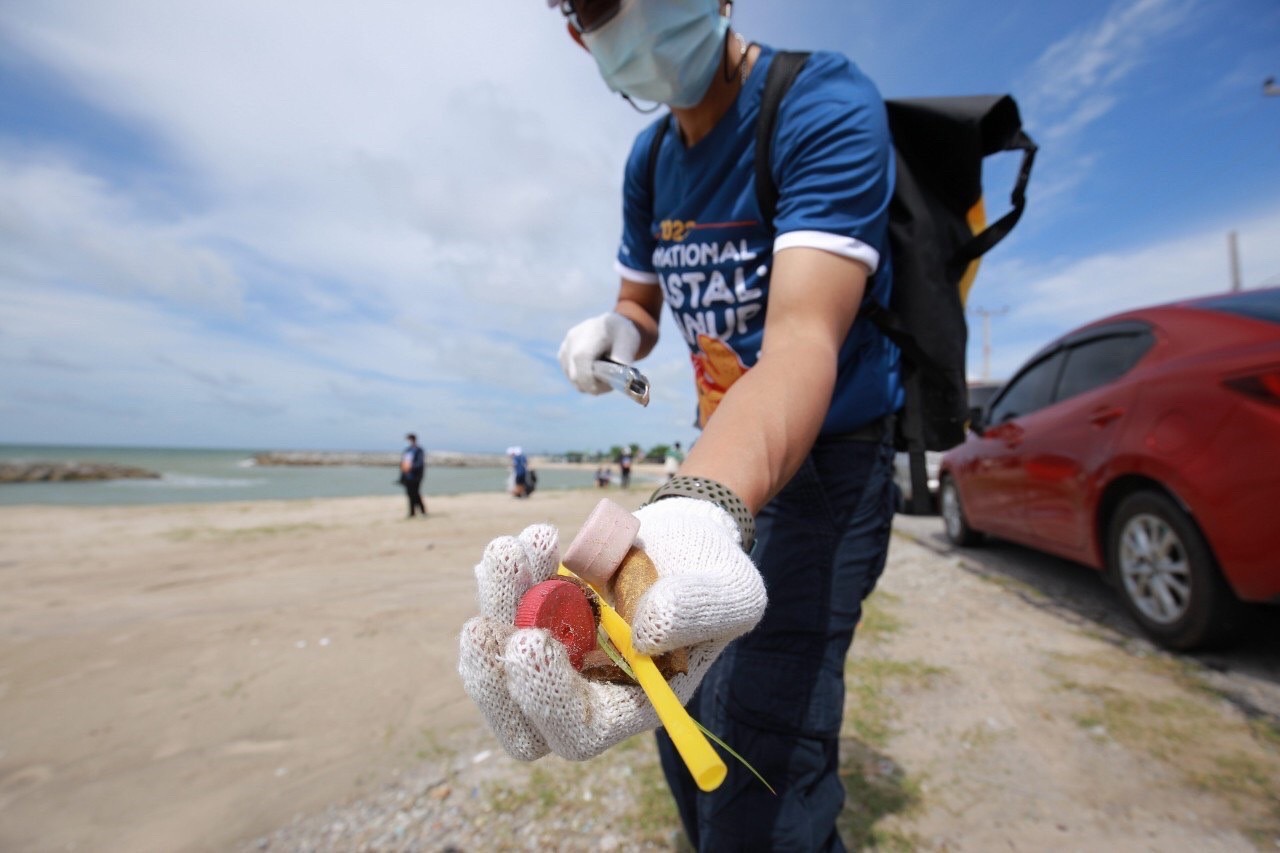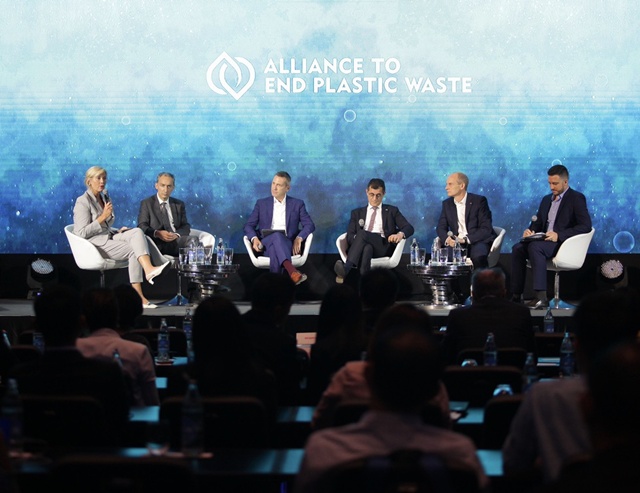Floating Litter Traps
Only 20% of marine debris is generated directly by sea-based activities, while the majority comes from human activities on land. SCGC recognizes this fact and hopes to tackle this issue more effectively by keeping as much used plastic in circulation as possible. To this end, SCGC has joined hands with the Department of Marine and Coastal Resources (DMCR) to develop two models of litter traps: the SCG-DMCR Litter Trap: Generation 1 and the SCG-DMCR Litter Trap Generation 2, which was made from HDPE bones.
Both models can withstand the current of the river and are UV-resistant and eco-friendly in the long term. They are also easy to assemble and transport and fully recyclable when worn out or damaged.
At present, in collaboration with DMCR, SCGC has installed 37 litter traps across 17 provinces and intercepted over 71 tons of waste before it can make its way to the sea. (Data as of June 4, 2021)
International Coastal Cleanup Day
To foster awareness that waste is a resource and promote proper waste separation and waste management to minimize impacts on marine and coastal ecosystems, SCGC has consistently participated in the International Coastal Cleanup (ICC) Day. For the year 2022, a beach cleanup was organized on September 17 under the theme #SeatheChange, with SCGC and over 450 volunteers cleaning up Saeng Chan and Laem Charoen beaches in Muang District and at Nam Rin, Phayun, and Phla beaches in Ban Chang District, which are vital eco-tourism destinations of Rayong.
For over 20 consecutive years of hosting ICC activities, SCGC has collected more than 850,000 pieces of trash, weighing more than 95,000 kilograms in total. The data of the waste collected is sent to Ocean Conservancy in the United States to be added to the numbers of other participating countries in order to solve the issue of marine pollution sustainably.
World-class partnerships
To sustainably enhance the efficiency of post-consumer plastic management through knowledge exchange and innovation co-development, SCGC has joined various leading international organizations, including the Alliance to End Plastic Waste (AEPW), the Ocean Cleanup, and the Ellen MacArthur Foundation (EMF).
SCGC is a founding member of and a sponsor for the Alliance to End Plastic Waste (AEPW), a non-profit organization that brings together world-class companies in the supply chain of the plastic industry, and serves as the key driver of its operations in Southeast Asia, a region where efforts are being made to quickly resolve the issue of marine debris and recover used plastics for further value creation in accordance with circular economy principles. In addition, SCGC has signed a memorandum of understanding with the Ocean Cleanup, a world-class non-profit eco-tech startup, for the research and development of technology that will help reduce marine litter in Thailand. This research collaboration will give Thailand clear and accurate data on the marine debris in the Chao Phraya ending up in the ocean, so that studies can be conducted on options for effective waste management and for maximizing the utilization of such waste in accordance with the principles of circular economy.
As for its partnership with the Ellen MacArthur Foundation (EMF), a UK-based non-profit organization founded in 2010, to play a central role in promoting and advocating the circular economy across all sectors, SCGC has learned about this economic model from representatives of the foundation and other member companies so that it can apply it to its business and share the knowledge with all sectors across Thailand. SCGC’s membership in EMF has also presented SCGC with an opportunity to present its ideas and projects that promote the recirculation of post-consumer plastics into the value creation process again, which has ultimately led to the Stretch Wrap Alternative Project (SWAP), a collaborative effort that studies stretch wrap reuse and recycling.
SCGC believes that circularity and effective upstream-to-downstream resource management will not only foster sustainability in a tangible manner but also further strengthen the business while also taking care of society and the environment. SCGC also strives to invent and develop plastic innovations for all possibilities and to ceaselessly drive projects beneficial to all sectors.



